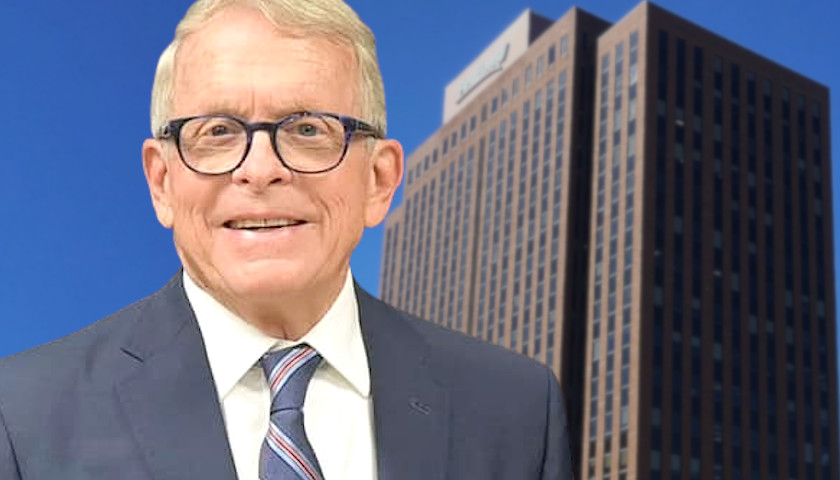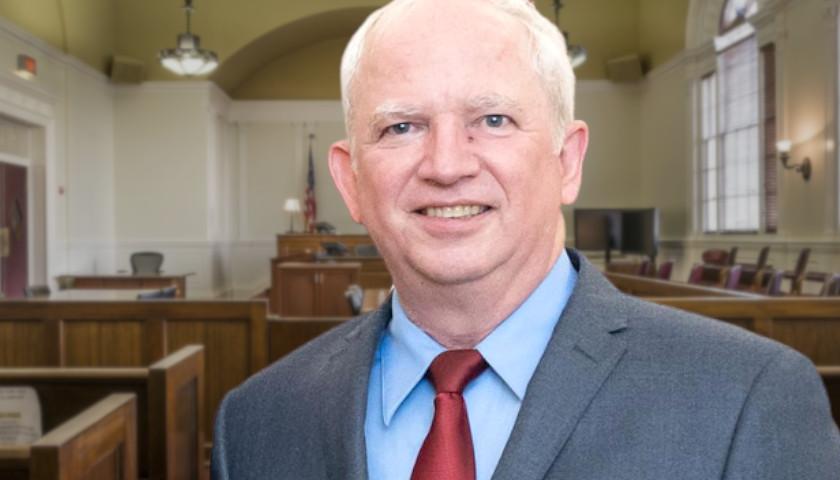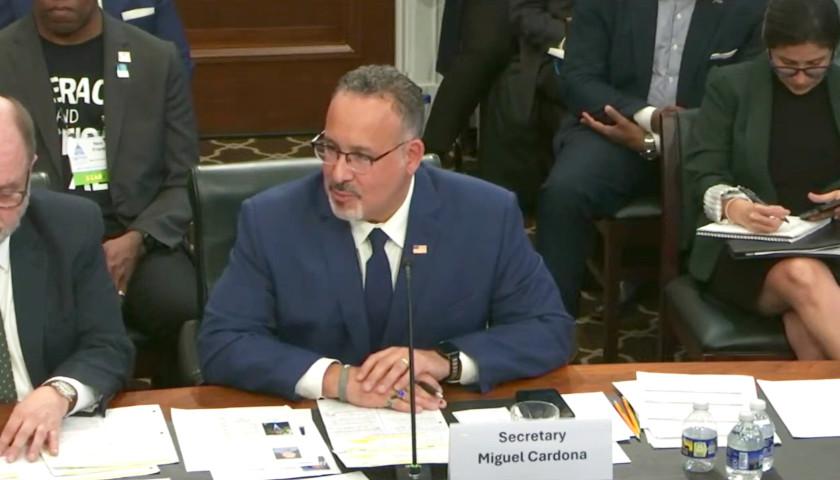On Wednesday, the Ohio Democratic Party (ODP) released new records pertaining to the FirstEnergy scandal, indicating that Governor Mike DeWine (R) frequently spoke with a “risk communications team” as well as attorneys including Ohio Attorney General David Yost (R) concerning the issue.
Jeff Crossman and Taylor Sappington, respectively Democratic candidates for Ohio attorney general and Ohio auditor, are also publicizing these documents via their campaign websites to underscore what their party suggests is increasing evidence of culpability on DeWine’s part. (Crossman will face Yost in this November’s election; Sappington is running against incumbent Auditor Keith Faber.)
The revelations come two weeks after text messages between FirstEnergy Corp. executives suggested Ohio Lieutenant Governor John Husted (R) discussed the infamous House Bill 6 with them. Husted has denied any wrongdoing.
The bill conferred $1.3 billion in bailouts on the FirstEnergy-operated Perry and Davis-Besse nuclear power plants. DeWine has since signed a repeal of that provision of the measure he originally approved in 2019.
Since House Bill 6’s enactment, FirstEnergy has been fined $230 million for its involvement in a $61 million influence-peddling scheme in which numerous political players including former Ohio House Speaker Larry Householder and former Ohio Republican Party Chair Matt Borges, himself a former FirstEnergy lobbyist, have been accused of bribery. Householder and Borges await trial next January for the allegations.
The documents ODP promulgated include a calendar marking of a “legal meeting” at the governor’s office on September 27, 2019, a few days after federal investigators surreptitiously recorded Householder and lobbyist Neil Clark discussing the legislation. Clark, who was named in the bribery probe, died by suicide in March 2021. Calendar entries also include phone calls with Yost and Householder as well as calls with a “legal team” as well as a “risk communications team.”
Democrats called on DeWine to release all records that are germane to the scandal. Last autumn, the party submitted formal requests to obtain them. This spring, unhappy with the level of cooperation it received, ODP filed a lawsuit to obtain all communications relevant to FirstEnergy and House Bill 6.
“For months, Mike DeWine has been dodging accountability when it comes to his role in the largest public corruption scandal in state history, and these records only create more questions than answers,” ODP spokesman Matt Keyes said in a statement. “Consulting lawyers and a crisis communication team as the scandal unfolded doesn’t exactly scream innocence. It’s past time for DeWine to tell Ohioans what he knew and when, and it’s time for him to come clean now.”
Democrats are not the only ones who have posed questions about the governor’s role in the genesis of House Bill 6 and the machinations surrounding it. In the run-up to the gubernatorial primary in which DeWine prevailed this year, conservative challenger Jim Renacci questioned the governor’s decision to appoint attorney and lobbyist Sam Randazzo to head the Public Utilities Commission of Ohio (PUCO) in February 2019.
When Randazzo chaired PUCO, he vocally opposed House Bill 6’s repeal. He resigned in 2020 and Yost has since named him in a civil-racketeering lawsuit pertaining to FirstEnergy, alleging that the defendant was paid $4.3 million by the corporation to influence the legislative process on its behalf.
Renacci criticized DeWine for tapping Randazzo, despite reports of the governor being privy to claims that his appointee used entities registered in his name to “funnel” money from FirstEnergy to make real estate purchases.
DeWine’s office did not return a request for comment.
– – –
Bradley Vasoli is managing editor of The Ohio Star. Follow Brad on Twitter at @BVasoli. Email tips to [email protected].
Photo “Mike DeWine” by Mike DeWine. Background Photo “FirstEnergy Building” by Cards84664. CC BY-SA 4.0.








